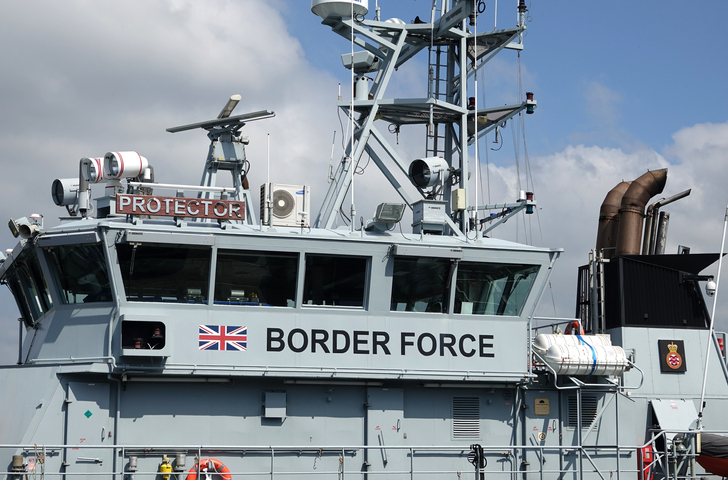New analysis of Home Office data suggests that the arrival of migrants in the UK via lorry has surged by 30 per cent, with just under 10,000 reported to have come via this route in 2021.
Analysis from the campaign group Migration Watch suggests that just under 9,000 people arrive via this means each year, with most discovered by enforcement personnel or Police after their entry to the UK rather than by Border Force staff at ports.
An estimated that around 70,000 people have been detected coming to the UK via this route since 2014.
The news comes as a number of declared candidates in the 2022 French presidential election have called for the Le Touquet agreement – which established juxtaposed controls – to be either renegotiated or scrapped altogether.


An average of 38,000 people have been stopped at the juxtaposed border controls per year in 2016-2019.
This morning, the right-leaning think tank Policy Exchange has called for an overhaul of UK border policies to tackle the Channel crisis. Alongside migration via lorries, over 28,300 people made the dangerous journey over the channel in 2021- more than double the figures for 2020.
The think tank’s ‘Plan A’ would be an agreement with France to accept the return of migrants and asylum-seekers attempting to cross the Channel in small boats.
They say that if such an agreement cannot be reached, Plan B would be to remove persons attempting to enter the UK on small boats to a location outside the UK – whether the Channel Islands, Sovereign Bases in Cyprus or Ascension Island – where their asylum claims would be considered. Under these rules, economic migrants would be returned to their home country, or to some other state willing to receive them.
The plans stress that people found to be “genuine” refugees under the European Convention on Human Rights, would be resettled in a safe state other than the UK. However, no person entering or attempting to enter the UK on a small boat from a “safe” country would be allowed to settle in the UK under such plans.
The study said that joint UK-EU patrols in the English Channel would be “the best possible response to the problem of small-boats arrivals”.
The report argues that neither Plan A nor Plan B would breach the UK’s obligations under the Refugee Convention 1951, but that Plan B would require express legislative authority to avoid being frustrated in the courts.
The think tank also recommends that either plan should be integrated with an enhanced programme of resettling UNHRC-sponsored refugees in the UK, writing that: “Some such generosity would in any case be appropriate to a relatively stable and prosperous country such as ours.”












